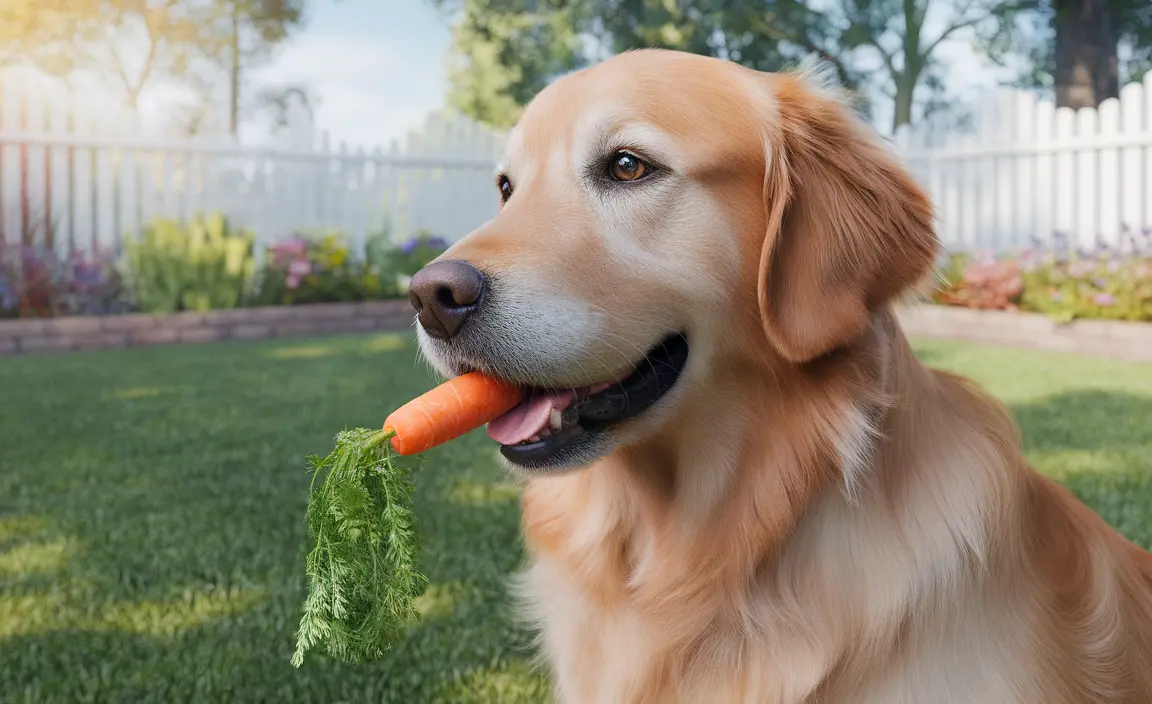As pet owners, we're always looking for nutritious and safe treats for our furry friends. Carrots have emerged as a surprising and beneficial snack that can support your dog's health in multiple ways. If you've wondered whether carrots are a good addition to your dog's diet, you're in the right place to learn everything you need to know about this crunchy, nutritious vegetable.
Packed with essential vitamins and minerals, carrots offer more than just a tasty crunch – they can be a valuable part of your dog's nutrition when served correctly. Let's dive into the world of carrots and canine health.
Nutritional Benefits of Carrots for Dogs
Carrots are a nutritional powerhouse for dogs, offering a wide range of health benefits. These vibrant orange vegetables are low in calories but high in essential nutrients that can support your dog's overall well-being. Here are the key nutritional advantages:
Vitamins and Minerals Galore
- Vitamin A: Supports eye health and immune function
- Vitamin B6: Helps with metabolism and brain function
- Vitamin C: Boosts immune system
- Vitamin K: Supports blood clotting and bone health
- Potassium: Promotes heart and muscle health
- Beta-carotene: Powerful antioxidant that converts to Vitamin A
Safe Ways to Serve Carrots to Your Dog
Raw vs. Cooked Carrots
Dogs can enjoy carrots in multiple forms, but preparation is key to ensuring safety and digestibility. Here are the best ways to serve carrots:
- Raw Carrots: Excellent for dental health, providing a crunchy texture that helps clean teeth
- Cooked Carrots: Softer and easier to digest, especially for older dogs or those with sensitive stomachs
- Frozen Carrots: Great for teething puppies and as a cooling summer treat
Preparation Tips
To prevent choking and ensure safe consumption, follow these guidelines:
- Cut carrots into bite-sized pieces appropriate for your dog's size
- Start with small amounts to avoid digestive upset
- Wash thoroughly to remove any pesticides or dirt
- Remove carrot tops before serving
Potential Risks and Precautions
While carrots are generally safe, moderation and proper introduction are crucial:
- Introduce carrots gradually into your dog's diet
- Limit treats to 10% of daily caloric intake
- Monitor for any signs of digestive discomfort
- Consult your veterinarian if you have specific concerns about your dog's diet
Creative Ways to Serve Carrots
Beyond Basic Treats
- Stuff hollow chew toys with mashed carrots
- Use as training rewards
- Mix into regular dog food for added nutrition
- Create frozen carrot "pupsicles" on hot days
Frequently Asked Questions
Can dogs eat carrots safely?
Yes, carrots are safe for most dogs when served in moderation and prepared correctly.
What are the health benefits of carrots for dogs?
Carrots provide essential vitamins, support eye health, boost the immune system, and offer dental benefits.
How should I prepare carrots for my dog to eat?
Cut carrots into small, manageable pieces. They can be served raw, cooked, or frozen.
Can I feed raw carrots to my dog without cooking them first?
Yes, raw carrots are safe and can help clean your dog's teeth, but ensure they are cut into appropriate sizes.
How many carrots can my dog eat daily without causing digestive issues?
Treats should comprise no more than 10% of your dog's daily diet. Start with small amounts and observe your dog's reaction.
Carrots can be a wonderful, nutritious treat for your canine companion when introduced carefully and served appropriately. Always consult with your veterinarian about the best dietary choices for your specific dog's needs and health conditions.






